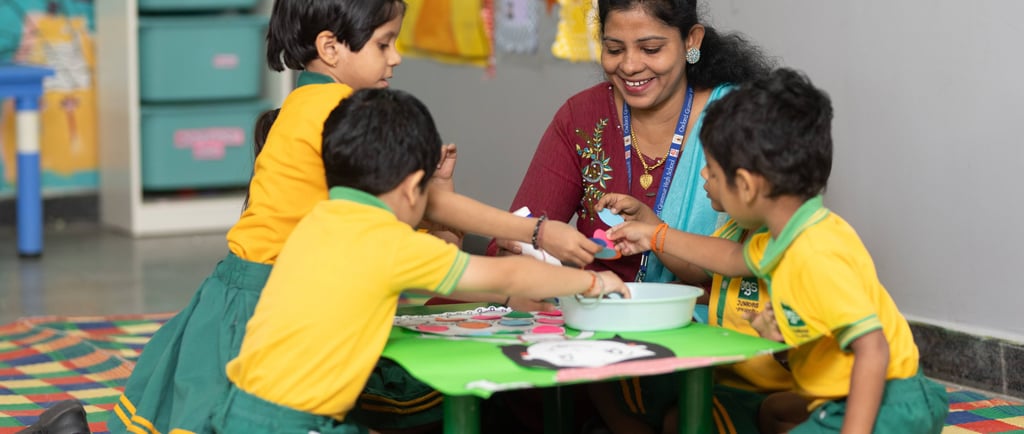Why Early Childhood Education Matters
Often, stakeholders—parents, community members, even fellow educators—believe that preschool doesn’t really matter because learning only begins in kindergarten. That couldn’t be further from the truth
Mrs Fatima Kazim
4/30/20252 min read


The Power of Early Childhood Education: More Than Just Playtime
Early Childhood Education (ECE) is the formal and informal teaching of young children from birth to age five. This critical stage lays the foundation for a child’s lifelong learning, behavior, and health. During these formative years, children rely entirely on adult caregivers—parents, teachers, daycare providers, babysitters, and extended family—to guide their growth and development.
ECE programs are thoughtfully designed to nurture children’s cognitive, emotional, and social development before they enter kindergarten. While some programs focus on academic readiness, others take a holistic “whole child” approach, preparing children mentally and emotionally for future success.
Yet, one of the biggest challenges faced by early childhood educators is the common misconception that their work is “just playtime.” Dr. Negussie highlights this concern, stating,
“Often, stakeholders—parents, community members, even fellow educators—believe that preschool doesn’t really matter because learning only begins in kindergarten. That couldn’t be further from the truth.”
In reality, young children have incredibly curious and adaptable minds. They’re constantly absorbing information, observing their environment, and learning through every interaction. They are natural learners—wired to explore, imitate, and make sense of the world.
Why Early Childhood Education Matters
Here are some key areas ECE focuses on:
1. Language and Literacy
Children begin communicating through gestures, sounds, and words, which paves the way for strong literacy skills. Early exposure to language sparks an interest in reading and storytelling.
2. Thinking and Problem Solving
Children are naturally curious. Through play and exploration, they learn fundamental math concepts like counting, sorting, and measuring, while also developing critical thinking and problem-solving skills.
3. Self-Control
The ability to manage emotions and behavior is crucial for school and social success. ECE helps children learn how to cooperate, cope with frustration, and resolve conflicts respectfully.
4. Self-Confidence
Children who feel capable and confident are more eager to try new things. Building self-confidence helps them navigate social interactions, deal with competition, and form lasting friendships.
Investing in early childhood education is investing in our future. Let’s value these early years and the educators who shape them. After all, learning doesn’t start in kindergarten—it begins from the very moment a child is born.
